The Path to Progress - Bristol Myers Squibb
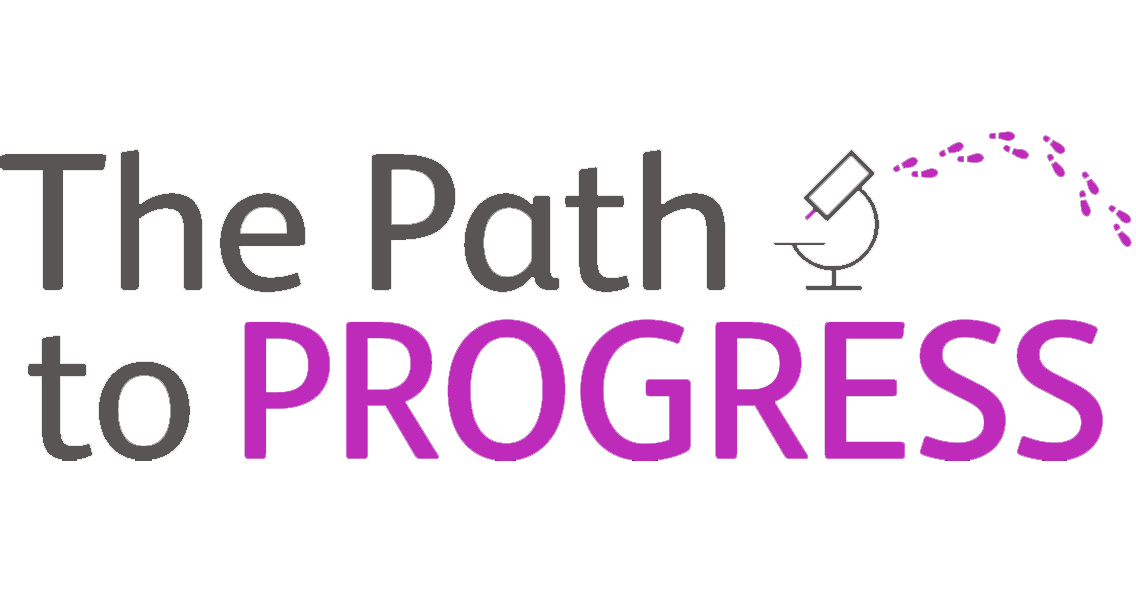
Have you ever wondered
how a medicine makes it to market?
The Path to Progress tells the story of the fascinating journey from discovery to
approval, making the science behind the drug development process accessible to all.
Told by those
who make it happen...
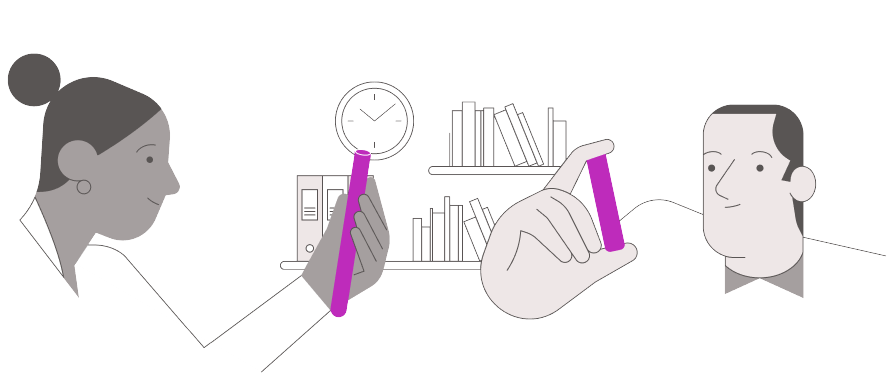
Told by those
who make it happen...
Stage 1:
Research and Development
Our Path to Progress journey begins at the Bristol Myers Squibb Moreton site, on the Wirral Peninsula, where our UK-based Research and Development teams are located.
Lucy Hawarden, a Research Scientist based at Moreton, is part of our Drug Product Development team, working to develop new treatments and monitoring the effectiveness of existing ones.
Lucy’s role is critical in understanding how medicines behave under certain conditions and determining how they can be developed into a suitable form for patients.

PhD Partnerships
As a key Research and Development site, Moreton also offers educational and research opportunities.
Zoë Whalley, an EngD Formulation Engineering PHD Student, performs fascinating research into 3D printed tablets in a collaboration between the University of Birmingham and our drug development team at Moreton.

Interested to find out more
about our Research and
Development site in Moreton?
Here you can virtually explore
the Moreton site >

Stage 2:
Clinical Trials
After Research and Development, the next stage of The Path to Progress journey is Clinical Trials.
Any new investigational treatment must undergo rigorous clinical testing before it is made available to patients.
These are studies conducted in humans and are a key part of bringing effective and tolerable medicines to market.
They are split into four phases:
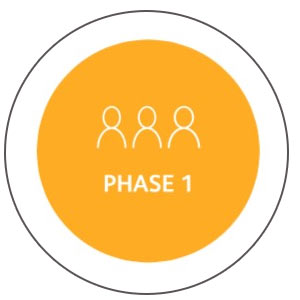
Small Group Testing
Researchers test a medicine in a small group of people to evaluate a dosage range and identify any potential adverse events.
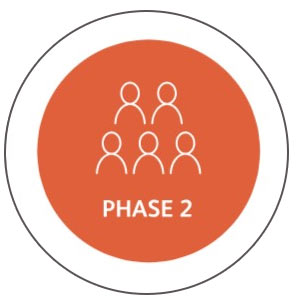
Large Group Testing
The medicine is tested in a larger group of patients and at different doses, to further monitor for adverse events.
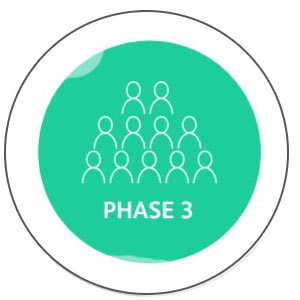
Global Trials
The next step involves clinical trials conducted in a much larger population of patients, in different regions around the world.
Phase 3 trial results will often form the basis of a country licencing approval, such as from the Medicines and Healthcare products Regulatory Agency (MHRA)
in the UK and the Health Products Regulatory Authority (HPRA) in Ireland.
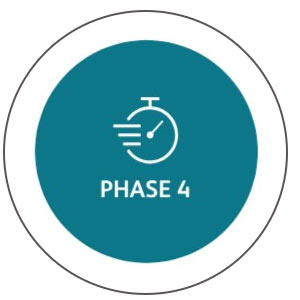
Real-World Trials
Finally, a clinical trial may take place to test an approved medicine in a real world setting. This takes place over a longer period, to learn more about the drug and identify any rare adverse events.


Our clinical operations team is based in Uxbridge, Greater London. They manage all the intricate processes associated with getting clinical trials set-up, monitored, and completed.
Michelle Szabo, Head of Clinical Operations, Paulina Sirko-Nowak, Senior Clinical Trial Manager, and Sem Abdulle, Senior Clinical Trial Monitor, collaborate to facilitate the clinical trial process, all with the aim of bringing innovative treatment options to patients.

Stage 3:
Regulatory Affairs & Medical Affairs
Our next stop on The Path to Progress journey is Regulatory Affairs and Medical Affairs.
Before a medicine can be placed on the market and become available to patients it must first obtain marketing authorisation and a licence.
What is the role of Regulatory Affairs?
Present at every stage of a medicine’s development.
Uses clinical trial data to apply for marketing authorisation with regulators.
Maintains a medicine’s licence to allow a continuous supply.
Submits updates and new variations of the licence, to ensure that it's medically accurate and compliant.


What is the role of Medical Affairs?
Plays a pivotal role in helping to achieve marketing authorisation for a medicine.
Ensures that critical and accurate information is relayed to all relevant stakeholders across the drug development journey.
Reviewing materials to confirm they're compliant with the ABPI and IPHA codes of conduct, which the UK and Irish pharmaceutical industries are required to operate within.
Kruti Shah, Associate Director and Regulatory Lead in Oncology, and Waise Haider, Disease Area Specialist in Dermatology and Rheumatology, are part of our Regulatory Affairs and Medical Affairs teams based in Uxbridge.

Stage 4:
Market Access
Once licenced, a medicine isn’t automatically offered to patients.
Market Access teams play a critical role in ensuring a medicine becomes available to the patients and prescribers who need it.
To do this, they must generate a comprehensive evidence base and demonstrate the clinical and economic value of a medicine to reimbursement bodies, healthcare budget holders and ultimately, prescribers.
Market Access at Bristol Myers Squibb is made up of four specialisms:
Health Economics and Outcomes Research (HEOR)
Policy, Advocacy, and Government Affairs (PAGA)
Pricing
Partnerships
Sophia Ho, Ali Monro and Sue Consterdine work closely together across the specialisms to ensure that we get the right treatment to the right people.

Stage 5:
Sales and Marketing
Once a medicine has been granted authorisation and is available to patients, the Sales and Marketing team collaborate to educate various stakeholders about the benefits and risks associated with using a new medicine.
Alongside our UK Head Office team in Uxbridge, we have colleagues in Field roles who work closely together to ensure the final step of The Path to Progress journey is executed with passion and pride.
Our collective goal is to help patients prevail over serious diseases – which requires a commitment to scientific excellence and innovative thinking to improve access to care.


Rosanna Smith, a Senior Brand Lead within our Marketing teams, and Bhavni Joshi, an Integrated Healthcare Manager within our Sales teams, work together as part of the Sales and Marketing function here at Bristol Myers Squibb.
They collaborate with other colleagues who perform specialist roles across Sales and Marketing, such as Sarah Kelly within Payor Marketing and Nicola Ellis within Medical Education.

Interested to find out more
about our UK and Ireland
Head Office in Uxbridge?
Here you can virtually explore
the Uxbridge site >

NO-GB-2300378
August 2024
